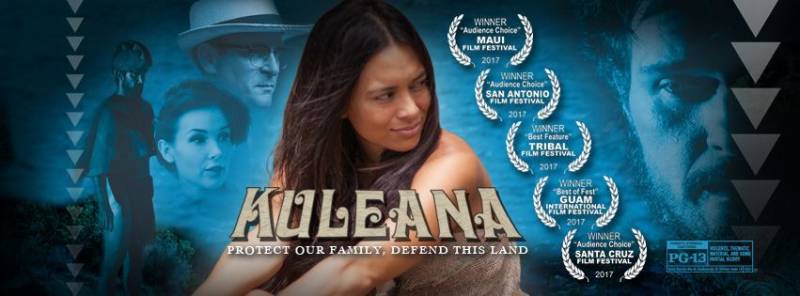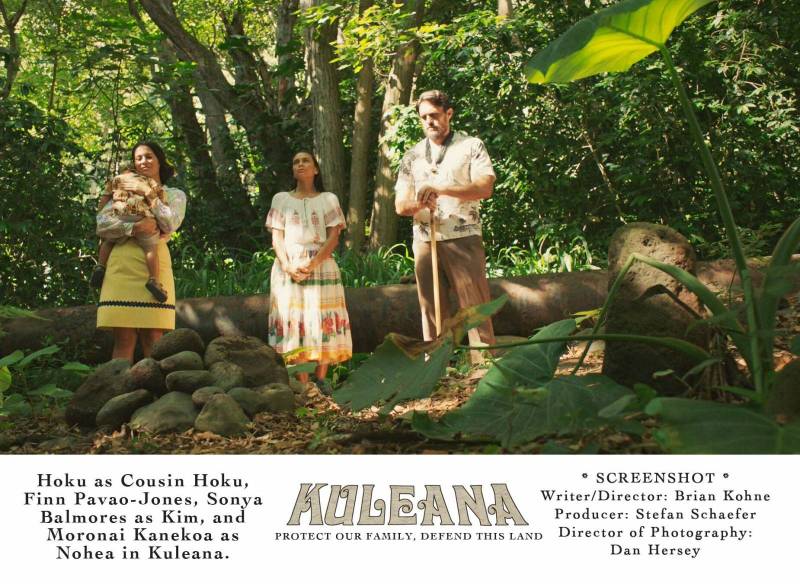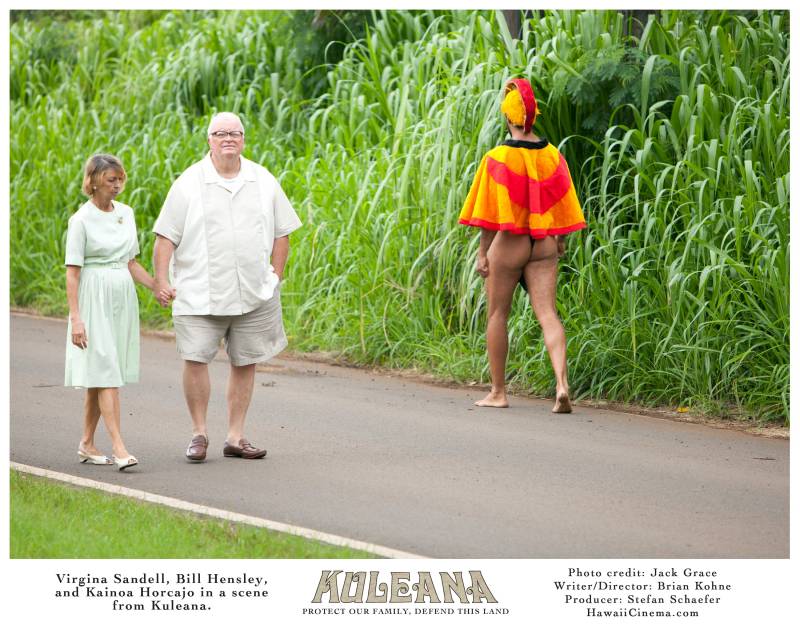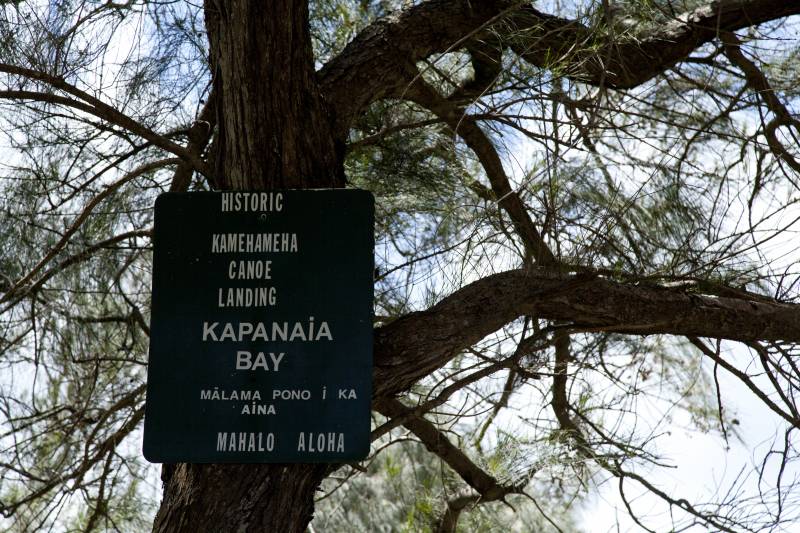Kuleana: The Movie and Hawaii Lifeʻs Conservation Director Role
If you love Hawaiʻi, you probably saw the 2011 movie The Descendants, in which George Clooney plays a Honolulu-based attorney, trustee for his familyʻs thousands of acres on Kauai, faced with pressures to sell the land for development. There were many scenes in the film adaptation of the book that rang true for a local audience. But if you want to take a deeper dive into similar territory from a truly local point of view, you must see Kuleana, currently in limited theatrical release.

Poster art and photos in this post courtesy of writer/director Brian Kohne and Hawaii Cinema
What is “kuleana”?
The Hawaiʻian word kuleana is most often translated simply as “responsibility,” but the indispensable Pukui-Ebert Hawaiian Dictionary gives dozens of possibilities, including “property” and “estate.” On title reports and parcel maps, one might find a “kuleana parcel” referring to a smaller holding (typically 2-3 acres) within a larger parcel, with title going back to the Kuleana Act of 1850.
The subtitle of the movie gives a fuller sense of what its characters understand by the term kuleana: the spiritual responsibility to “protect our family, defend this land.” One theme threading through the movie is the tension between a traditional sensibility that we humans are only guests and stewards—never owners—of land, versus the profit-driven viewpoint of the developer for whom land resources only serve human economic goals.
The character Nohea wrestles with a choice that is real for land-owning Hawaiian families: weighing the value of his love of the land and the traditional lifestyle in which he was raised, against a financial gain that could provide for the ongoing needs of the extended family. He knows he has kuleana, but must answer the question of what is his kuleana and what actions acceptance of that kuleana will imply.

Does a real estate brokerage in Hawaiʻi have kuleana?
Three years ago, at the blessing for our renovated Hawaii Life – Kona office, Tumu Naleialoha Napaepae-Kunewa challenged us as real estate professionals to consider our kuleana. Under state law and the Code of Ethics of the National Association of Realtors, we are asked to uphold certain responsibilities towards people (clients and customers, the public, other Realtors). Tumu was not talking about that; she was talking about the Kuleana Movie kind of kuleana.
For three years, I have been thinking about how a real estate brokerage in Hawaiʻi takes on kuleana for place, not only people. Iʻm far from having the answers, but Iʻm living with the question.
Every day we at Hawaiʻi Life help people buy and sell land and homes. Over 22,000 transactions in 2017.
Statewide, we sell more properties over $3 million than any other firm.
Meaning, we facilitate the sales of some significant properties. Often ones that have significance far beyond their dollar value.
Therein lies our kuleana.
Ua mau ke ea i ka ʻāina i ka pono says the state motto. Usually translated as “the life of the land is perpetuated in righteousness,” words and phrases in this poetic language have layers of meaning. One layer for me is this: We are Hawaiʻi Life. There is no life, certainly no distinctively “Hawaiʻi Life,” without the life of the land. The choice of that name carries kuleana.

In one scene from the movie, residents of a new development complain to the developer that Hawaiʻians are walking across their lawn at night…and they arenʻt fishermen. And indeed, developments are built in places where ancestors walked; todayʻs protocols require that those known trails be preserved.
What is a “Director of Conservation and Legacy Lands”?
And as our founder/Principal Broker Matt Beall says “land in Hawaiʻi is a zero-sum game.”
What he was willing to recognize in officially creating a position called “Director of Conservation and Legacy Lands” is that we as a company are ready to take kuleana in standing for lands that should never be developed, and for historic places and values that should be conserved and preserved. With this position and area of real estate practice, we focus our expertise, our real estate platform, and our sheer presence in the market, in service to a different kind of real estate “transaction.”

My listing at Kapanaiʻa Bay in North Kohala is slated to be purchased with County Open Space funds after years of patient work with the owners and the community.
I was honored and humbled to accept the role, as this is work I have been committed to for years as part of my personal real estate practice. It is an incredible opportunity to be able to contribute on a larger scale.
Some of the ways in which I think our commitment will play out include:
- creating a section of our website highlighting lands with conservation values and cultural importance
- consulting to owners and sellers of these significant properties and their agents
- becoming a resource for buyers who wish to steward these properties or donate them for conservation purposes
- working side by side with land trusts, national and local organizations, and communities in preserving these special places.
Love for land, for oneʻs familyʻs special places, for culture, and for a way of life particular to a place…these are part of a universal human experience. If you feel drawn to help us in protecting the special places of Hawaiʻi, please join us in this endeavor.


Leave your opinion here. Please be nice. Your Email address will be kept private, this form is secure and we never spam you.